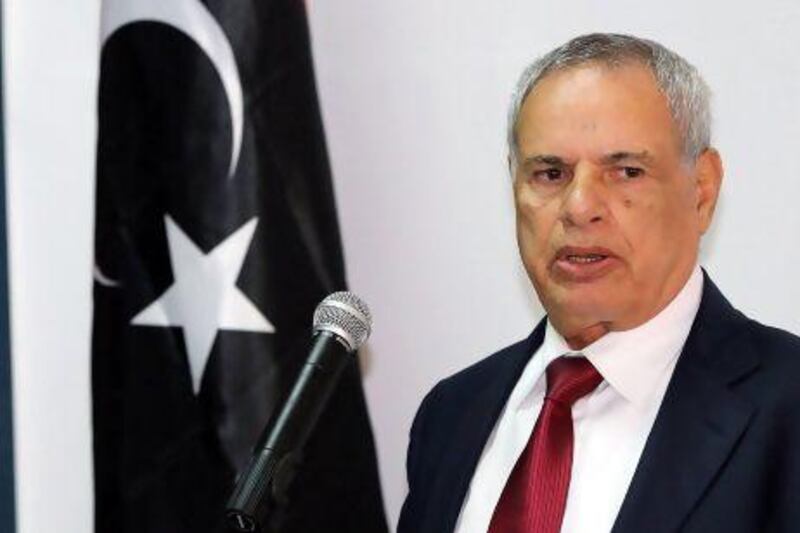Libya's defence minister was convinced not to quit after he resigned yesterday in protest against armed militias that surrounded his ministry for two days, an action he called a "blatant assault on democracy".
Mohammed Barghati had stepped down in the face of continuing political pressure from the militias, who supported a government law approved on Sunday that bans officials associated with the late leader Muammar Qaddafi from holding office. Later in the day, a spokeswoman told news agencies that Prime Minister Ali Zeidan had persuaded Mr Barghati to stay on.
Under the law , Mr Barghati - an air force pilot during Qaddafi's rule - will likely be barred from holding office when a new committee is set up in a month's time to weed out officials who served under the regime.
But groups of militias who have demonstrated outside the defence ministry, calling for the resignations of Mr Barghati and the armed forces' chief of staff, appear to be unwilling to wait for the legal process to take its course.
The role of the militias, once part of the ragtag rebel army who brought down Qaddafi's regime nearly two years ago, has come under close scrutiny in the past week. Armed groups, many of whom are technically commanded but not really controlled by the interior and defence ministries, have repeatedly pressured the interim General National Congress to execute their preferred policies.
They have staged numerous demonstrations, with pick-up trucks and heavy weapons, outside official buildings over the past several months.
They have called for the resignation of the defence ministry's chief of staff, Yousef Mangoush, claiming that he is corrupt and inefficient. The Associated Press reported that the politician Mohammed Zayed had posted on his Facebook page that the government had voted to dismiss Mr Mangoush yesterday.
"It goes against all the democratic values," said Noman Benotman, a close observer of Libya, of the Quilliam Foundation think tank. "It's creating a political scene which is going to stop most people from practising their democratic rights."
He added that the "whole world" had seen that the militias forced the parliament to pass the law hastily. "This is some people protecting their own interests and agendas," he said. "I don't accept that this serves the interests of the Libyans."
He suggested that the law could alienate a substantial chunk of society who supported or held office under Qaddafi, which could undermine the already frail power of the government.
While many Libyans also express anxiety about the return of Qaddafi loyalists, there have also been numerous demonstrations against the impunity of the militia groups. The groups sometimes keep order and protect public buildings suchas banks and hospitals - but are also accused of setting up fake checkpoints, involvement in carjacking and other crimes and, most notoriously, of storming the American consulate in Benghazi in September last year and killing four American officials, including the ambassador.
twitter: For breaking news from the Gulf, the Middle East and around the globe follow The National World. Follow us





